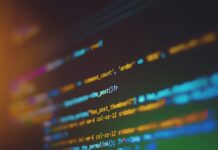ST Engineering and the National University of Singapore (NUS) have joined forces to develop network encryption solutions that provide superior security by leveraging quantum cryptography technology.
The collaboration is supported under the National Research Foundation’s (NRF) Quantum Engineering Programme (QEP).
Current leading security standards such as those used in ATM machines or online transactions do not use quantum technology and this may pose a security risk when quantum computing technology becomes readily available. While these keys can still adequately protect digital communication, there have been reports of breaches and there is a need to explore alternative technologies.
Quantum key distribution (QKD) technology uses the laws of quantum theory to distribute secret keys over an insecure network. It uses the highly sensitive nature of quantum signals and can detect any attempts on eavesdropping, offering a secure form of encrypted communication.
The secret key is transmitted using a sequence of carefully prepared single-photon quantum signals. If the secret key is intercepted, the quantum signals will be disturbed and keys will be rendered useless. This enhances the security of digital communication as data cannot be intercepted or eavesdropped
The collaboration between ST Engineering and NUS will take this to the next level by using “measurement-device-independent” QKD (MDI-QKD) technologyto heighten cybersecurity defence against increasingly sophisticated threats. It also operates efficiently under real-world conditions.
NUS researchers and ST Engineering engineers will make advanced quantum cryptography more accessible to the wider market and further advance this technology by developing a new class of “quantum-resilient encryptors”. These encryptors provide a highly scalable and cost-effective solution that can be deployed with minimal disruption to existing digital infrastructure.
This addresses the current limitations in the market as products are designed for point-to-point communication and are not scalable. This will also accommodate a larger number of users, and will benefit numerous applications – from financial services institutions, to government agencies, and hospitals.
Mr Goh Eng Choon, President of Cybersecurity Systems Group at ST Engineering, said, “The threat landscape is evolving very rapidly and we must be prepared for challenges to come in the post-quantum computing era. While QKD technology can be used to secure digital communications, it can also be used to mitigate future quantum computers being used to exploit and maliciously target weak links and disrupt the global encryption ecosystem.
“This research into quantum cryptography and the co-development of the industry’s first solution will allow us to explore the potential of this technology, further strengthen our arsenal of advanced cybersecurity solutions and gain a foothold in the QKD market,” he continued.
Mr George Loh, Director of NRF’s Services & Digital Economy, said, “As the use of digital technologies and services become increasingly mainstream, it is important that we find better ways to ensure our online engagement and digital privacy is more secure than ever.
“The objective of the National Quantum Engineering Programme, launched by NRF in late 2018, is to translate quantum research into tech-enabled capabilities that can benefit society and beyond,” he concluded.
The partnership between ST Engineering and NUS is part of NRF’s QEP initiative that was announced in 2018 to help Singapore’s industries compete at the global forefront of innovation and enterprise, by tapping world-class expertise in Singapore’s scientific research community.














